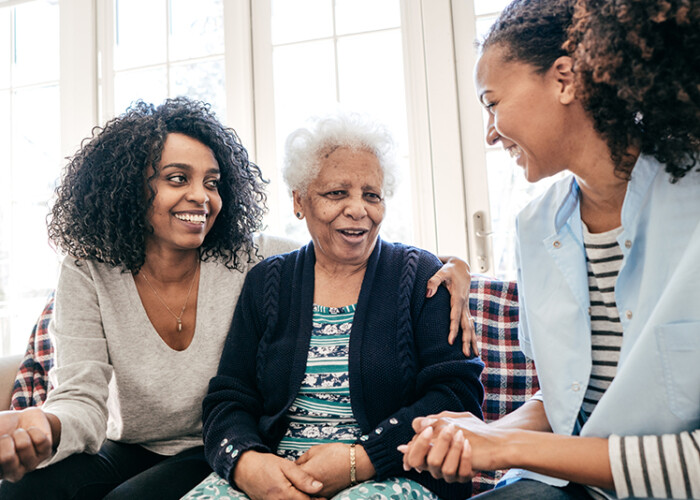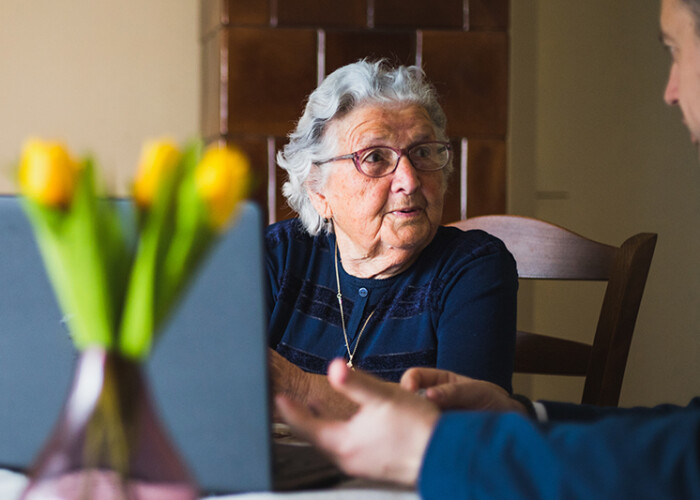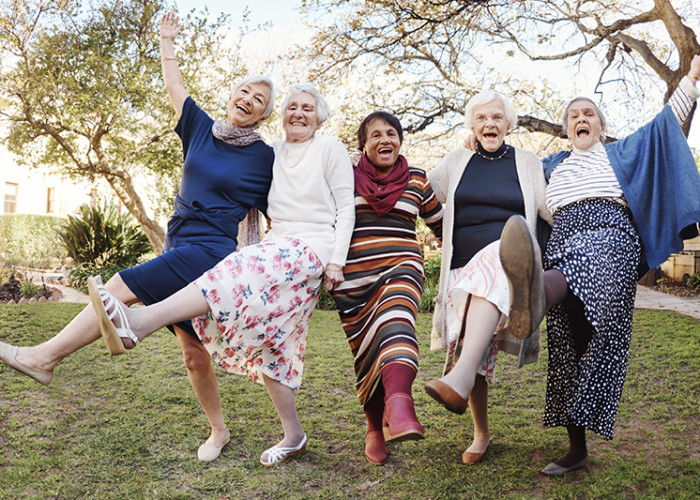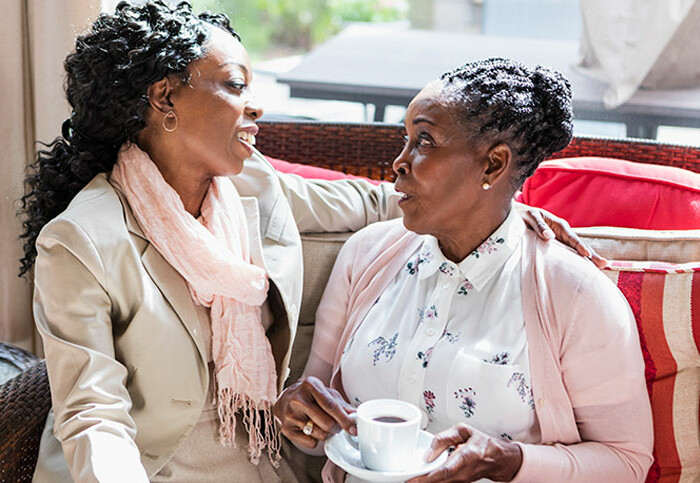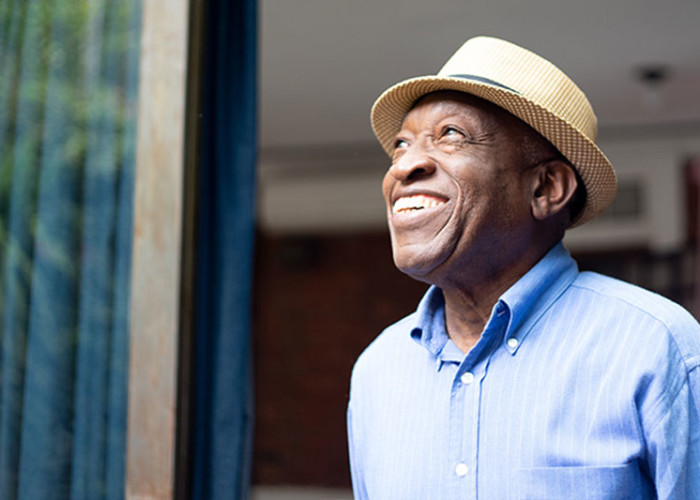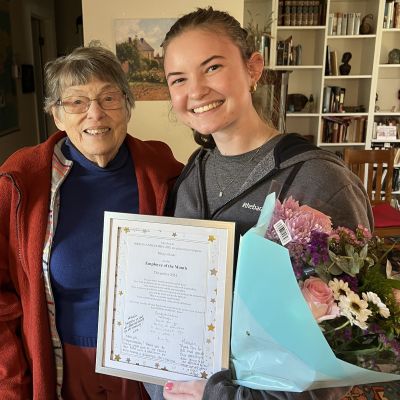Benefits of Home Care
3 Steps to Better Advocate for an Aging Parent
Trusting someone you love to the care of someone else is never easy, particularly for a senior family member. Whether at home or in a facility, you’ll have questions you need answered. You will also want to be ready to advocate for an aging parent to proactively address any potential problems and also to quickly take care of issues that do take place.
For instance, review the following common situations and how to most effectively advocate should they arise with an older adult you love:
The person has dementia. A loved one with Alzheimer’s might not be able to effectively communicate their wishes and needs. As an example, a new caregiver may not realize that Dad wears inserts in his shoes and she may put his shoes on each day without them. Dad may not know how to communicate this … Read More »
How to Get Away From It All While Caring for an Older Loved One
Dreaming of that perfect vacation while listening to friends and family share tales of exciting getaways? The desire to travel and escape reality for a little while is universal, but when you are caring for an older loved one, it might seem like an unattainable luxury. However, taking a break is not just possible; it’s crucial for both your well-being and the well-being of your older family member.
Why Taking a Break Matters
Neglecting self-care can lead to burnout and depression, ultimately affecting the quality of care you provide. So how can you step away and know that the individual you’re caring for will remain safe and well while you’re gone?
These tips are a great place to start:
Talk About It. Initiating a conversation with the older adult about your upcoming break is a crucial step. Transparency builds trust … Read More »
What to Do When an Older Adult Refuses to Pay for Care
Many of today’s older adults grew up during the Great Depression. They lived through a time when the country was cutting corners and pinching pennies. Frugality was embedded in many of them at an early age and quite often remains firmly in place for life.
So what can you do when an older adult refuses to pay for care, even though they clearly are in need of care at home and have the financial ability to pay for the care?
First, empathize. Understand that the person’s perspective is valid and determined by past life experiences. If the older adult seems to be resistant to the idea of spending money for the care they need, remind yourself of the emotions behind the behaviors. An additional layer of difficulty may be in simply accepting the need for care altogether, something that … Read More »
Reminiscing in Dementia: How to Spark Memories and Instill Joy
Memory loss and dementia may seem synonymous. Yet it’s crucial to understand that long-term memory frequently remains intact long into the progression of the disease. For this reason, tapping into those distant memories is a good way to help an older adult with Alzheimer’s stay engaged in current conversations by connecting to the past. Reminiscing in dementia can help older adults:
Better connect to others through sharing stories
Instill self-confidence by bringing to mind the numerous accomplishments they have made as well as the lives they’ve impacted
Minimize some of the adverse effects of Alzheimer’s, such as restlessness, wandering, agitation, and more
Reduce negative emotions and stress by shifting the focus to happier times
Reminiscing in dementia, also known as reminiscence therapy, doesn’t have to be elaborate. Begin by cracking open a photo album and simply looking at pictures together. Then let … Read More »
The Importance of Friendships and How to Find Friends as a Senior
Knowing how to find friends as a senior is the first step to enhancing socialization and quality of life.
Observing kids effortlessly form friendships at the playground is a heartwarming sight, but as adults, building connections can be a bit more complex. Friendships are vital, especially for seniors emerging from COVID-related isolation. How can you assist the older adults in your life in enhancing their socialization and making new friends?
While a pick-up game of tag might not be on the agenda, consider these alternative tips for how to find friends as a senior:
Join a Club: Help an older loved one brainstorm their interests, whether it’s reading, knitting, gardening, fishing, or sports. Look online for local groups or explore resources at the senior center. If no suitable groups exist, consider creating one!
Take a Class: Community colleges often offer … Read More »
Do You Need a Guardian for a Senior Parent?
Learn when it’s a good idea to designate a guardian for a senior parent.
In an ideal world, our family relationships would all be helpful and positive. We would manage transitional times cooperatively, smoothly, and without any disagreement. As our parents grew older, it would be a simple process to satisfy their current needs and their changing future needs.
4 Ways to Better Advocate for Your Older Loved Ones
Being a better advocate for your older loved ones begins with these four tactics.
“Unless someone like you cares a whole awful lot, nothing is going to get better. It’s not.” – Dr. Seuss, The Lorax
Serving as an advocate for your older loved ones is perhaps one of the greatest honors – and responsibilities – you’ll have as a family caregiver. It means fully comprehending their needs and wishes, and communicating them to those who can help to make sure they’re achieved.
Feeling Worn Down? Try These Ideas to Gain Energy as a Caregiver!
These four simple tips can make a big difference in helping you gain energy as a caregiver.
Providing care for someone else can be exhausting. Add in the shortened daylight hours of fall that we’re beginning to experience, along with the everyday stressors in life, and it’s no wonder so many of us are feeling worn down and sluggish. Try these ideas from our home care team to help you shift from feeling fatigued to fabulous and gain energy as a caregiver.
Consume more high-energy, complex carbs. If the hectic pace of life or simply ingrained habits have you grabbing a quick bowl of sugary cereal for breakfast, snacking on chips and soda, and seeking out comfort foods like macaroni and cheese or white bread, it’s only natural for your energy level to be sapped. Instead, choose whole grains, … Read More »
How to Care for Someone With a Progressive Disease
These tips will guide you in how to care for someone with a progressive disease.
It might have been expected, or perhaps broadsided you without warning. Mom has just received the official diagnosis for a progressive disease that is likely to make independent life difficult. While there are a number of uncertainties, one thing is for sure: she is adamant about remaining at home – meaning you’ll have to learn how to care for someone with a progressive disease.
Welcome to the world of family caregiving! If you’re feeling a bit overwhelmed with what can be expected next, these recommendations will help.
Discover as much as you’re able to about the disease. The older adult’s doctor can provide you with resources and educational materials to help you know what to anticipate and to gain confidence in your caregiving role.
Prioritize … Read More »
4 Ways to Boost Resilience in Older Adults
Discover how to improve resilience in older adults in four simple steps.
Did you ever encounter someone so inspiring that it completely changed your viewpoint on life? It might lead you to pause and wonder what it is about that person that supplies them with the drive and strength to stand out from the crowd. This type of resilience in older adults is especially encouraging, showing us that whatever comes our way, at whatever age, life is beautiful, rich, and fulfilling.
At the Robert N. Butler Columbia Aging Center at Columbia University, research workers decided to examine this further with their “Exceeding Expectations” project. They followed 20 elderly New Yorkers from diversified backgrounds and cultures for a two-year time period. Here is what they learned about the resiliency of these extraordinary individuals.
They never let their obstacles define them. … Read More »


